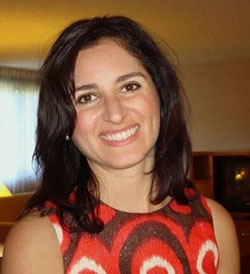
I was first diagnosed with bipolar disorder when I was 24 years old. At that time, I was working as a pharmaceutical sales representative, was engaged and planning my dream wedding, and remodeling a fixer home. I lost sleep; waking up at 3 a.m. to call relatives. My mind raced and I had an exorbitant amount of energy. Along with grandiosity came a large purchase—a timeshare, which was later returned with the help of a lawyer. I experienced delusions that the FBI and CIA were after me. It was then that my parents took me to a psychiatrist. While the delusions went away, feelings of shame/stigma stayed, and my engagement fell apart. I went back to work feeling very awkward and out of place. I felt alone and different.
One year later, I questioned my diagnosis. I did little to educate myself on bipolar and began to tinker with my medications. Soon, the anxiety, paranoia, and delusions returned, with much greater intensity. That is when I got a glimpse inside the walls of a psychiatric facility. (No balloons and flowers here.) This stay only lasted 7 days, but recovery lasted months.
Upon discharge, a nurse recommended the DBSA Berkeley, CA support group. This group impacted me greatly—listening to others tell their stories, their struggles, I began to hear my own. Racing thoughts, spending sprees, direct contact with God…their experiences were mine too. I was in disbelief, but relieved. This was real. I wasn’t making it up. I was very healthy and stable for many years.
In 2009, stress from work affected my sleep and I didn’t have a plan to manage my symptoms. I was doing my best to stay above water, but over the course of two months, the symptoms were too intense, and I found myself in in-patient treatment again—this time for 72 days. By the grace of God, I recovered enough over the subsequent 15 months to return to a new, less stressful career. Since then I’ve also gotten married and started a family. I feel grateful that I could work closely with my ob/gyn and psychiatrist to have a safe pregnancy with medications.
I continue to stay well with the love and support of my husband, a daily yoga practice, and a collaborative relationship with my psychiatrist. I’m also helping to start a DBSA support group in my area. Some days are better than others, but I am grateful for recovery.


